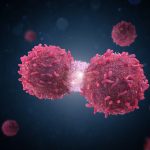Early-onset cancer on the rise around the world, new study suggests
 (NaturalHealth365) Much has been made of the fact that Generation X’s lifespan is on pace to be shorter than the boomers. Gen X lived fast, and some members of the age cohort are departing sooner than expected. The reduction in lifespan is partially attributable to the increase in cancer. The question is why cancer rates are spiking. It appears as though the scientific community has the answer.
(NaturalHealth365) Much has been made of the fact that Generation X’s lifespan is on pace to be shorter than the boomers. Gen X lived fast, and some members of the age cohort are departing sooner than expected. The reduction in lifespan is partially attributable to the increase in cancer. The question is why cancer rates are spiking. It appears as though the scientific community has the answer.
Cancer rates are soaring in adults aged 50 and under. This finding is especially concerning as it indicates our environment is becoming more toxic by the day. Alternatively, it is also possible that lifestyle changes, including increasing rates of sedentary living, are largely or partially responsible for the increase in cancer rates.
Early-onset cancer rates have been steadily rising since the 90s – but why?
The spike in early-onset cancer started in the early 90s and has continued since. Cancers of the pancreas, kidney, colon, liver, esophagus, and even the breast have increased worldwide, especially in those aged 50 and younger. Brigham and Women’s Hospital research shows early-onset cancer, meaning cancer in individuals diagnosed in young to middle-aged adults, has increased in recent decades.
Recent scientific studies highlight data in which the birth cohort effect is observed. The birth cohort effect reveals that successive groups of individuals born at later dates have a heightened chance of developing cancer down the line. The data also shows that the spike in cancer risk is likely the result of risk factors that people were exposed to at an earlier age, be it as an adolescent, tween, teen, or young adult.
What else is driving the trend?
The data from the study referenced above shows that the risk for early-onset cancer increases with successive generations. For example, those born in the 60s have a higher risk of cancer before the age of 50 than those born in the 1950s. Furthermore, the scientific community unanimously agrees that the level of risk will only continue to increase with ensuing generations.
Data review indicates early life exposome ranging from weight to diet, lifestyle, microbiome, and exposure to environmental risks have changed in recent years and decades. The western world has made fast food consumption socially normative, added plastics to packaging, dumped plastic in the water, and generated all the more harmful, cancer-causing pollution with each passing day. In plain terms, the fast-paced, hyper-efficient, consumer-centric western way of life has heightened risk levels to the point that cancer rates have become a primary social problem.
Eliminate these risk factors to increase your chance of a cancer-free life
Let’s shift our attention to risk factors for early onset cancer. The top risk factors for developing cancer early in life are eating processed, sugar and microplastic-laden food, smoking, the consumption of alcohol, and insufficient sleep. In total, more than a dozen types of cancer have increased in recent years, with more than half of them related to the stomach.
The food we eat affects our gut microbiome. While sustenance is important for energy and biological functions, we must carefully examine the foods we eat. When undesirable changes occur to the microbiome composition, our risk of cancer and other diseases goes up.
The takeaway from the data detailed above is that those who proactively improve their diet and lifestyle will step forward into an increasingly risky future with unwavering confidence and realistic optimism for enjoyable golden years down the line.
Sources for this article include:



